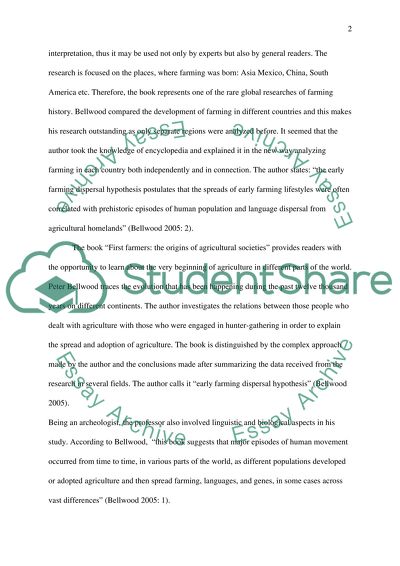Cite this document
(“First Farmers: the Origins of Agricultural Societies by Peter Bellwood Book Report/Review - 1”, n.d.)
First Farmers: the Origins of Agricultural Societies by Peter Bellwood Book Report/Review - 1. Retrieved from https://studentshare.org/agriculture/1474493-first-farmers
First Farmers: the Origins of Agricultural Societies by Peter Bellwood Book Report/Review - 1. Retrieved from https://studentshare.org/agriculture/1474493-first-farmers
(First Farmers: The Origins of Agricultural Societies by Peter Bellwood Book Report/Review - 1)
First Farmers: The Origins of Agricultural Societies by Peter Bellwood Book Report/Review - 1. https://studentshare.org/agriculture/1474493-first-farmers.
First Farmers: The Origins of Agricultural Societies by Peter Bellwood Book Report/Review - 1. https://studentshare.org/agriculture/1474493-first-farmers.
“First Farmers: The Origins of Agricultural Societies by Peter Bellwood Book Report/Review - 1”, n.d. https://studentshare.org/agriculture/1474493-first-farmers.


